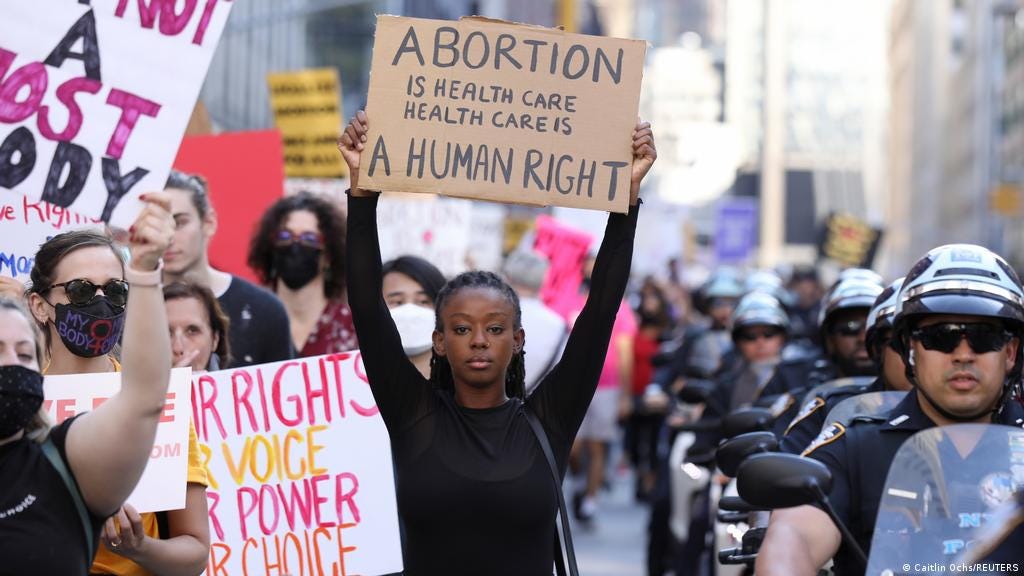Why you should care about reproductive rights?
Job Board + Information v/s Misinformation + Reproductive Rights
Hello, hope you are doing well. In this week’s newsletter, we talk about the reliability and validity of information across platforms and who people trust. Besides this, the impact of withdrawing reproductive rights of women across economies.
Job Board
Changemakers in Education Fellowship, Government of Delhi
To Apply, click here
Policy & Communication Interns, The Dialogue and Development Commission
To apply, click here
National Researcher, Climate Change Policy and Adaptation, International Water Management Institute
To apply, click here
Public Policy Manager, South Asia, Airbnb
To apply, click here
Despite Misinformation, 54% Indians rely on Social Media for information
In the era of information overload, the spread of misinformation is prevalent on social platforms. As per the World Economic Forum, misinformation is one of the main threats to our society. To prevent this, how do we identify the valid and trusted source of information?
A study was conducted by Oxford University Press, under a campaign ‘The Matter of Fact’. It surveyed 5,000 people with the aim to look into how people identify truth and validate sources.
The key highlights of the report
#1 Politicians and Governments as a trusted source
In India, more than 70% of respondents rely on politicians to gauge if the information was fact or fiction while in the other countries less than half of people relied on their governments.
#2 Trust in Experts & academicians
The study stated that the increased deliberations with scientists and academic research during the pandemic led to almost 8 in 10 (79%) people relying on experts to understand whether something is truthful.
Additionally, 8 in 10 people believed that universities and academic institutions had an important role in identifying whether something was true or not.
#3 Shift in attitude
The massive misinformation spread online during the pandemic made 74% of respondents more cautious regarding how accurate the information is.
Three-fourths of respondents were confident that the information they shared on social media was true. Two-thirds said they turn to Google or other search engines.
#4 The shift in the perspective
Globally, 80 % of the people said they started consulting more than one source to understand if something is true and believed that whatever truths they find, should be backed up by evidence.
Validated and Reliable sources Identified by Respondents
(Sources: Oxford University Press, Quint, Print)
Why should we care about reproductive rights?
The U.S. Supreme Court on 24th June 2022 overturned Roe v. Wade, the 1973 decision that had provided a constitutional right to abortion to women in the USA.
This initiated a series of debates on the mental and physical health of women, their right to make a choice, and a lot more. Here we curated a bunch of consequences that this judgment might end up having on the economy and society.
Multiple Impacts and Factors at play
#1 On Economy
Women’s participation and advancement in the workforce are key to spurring economic growth. Restrictive reproductive health policies put economies and business environments at risk and limit women’s economic potential.
Based on data from 2020, a study from the International Women’s Policy Center found that abortion restrictions cost global economies an estimated $105 billion per year, and getting rid of all state-level restrictions would increase the national GDP by nearly 0.5%.
#2 On Society
The measures of banning abortion hit women the hardest and they already face systemic obstacles to accessing health care and economic opportunities—including Black women, Hispanic women, low-income women, rural women, LGBTQ+ individuals, and more.
The original Roe v Wade decision acknowledged that making people carry and raise unwanted children could “force upon” women “a distressful life and future,” which would further hamper the ability of women to participate fully in society. This will lead to a greater intensity of inequality between privileged and less privileged women.
Experts’ Say
Caitlin Myers, an economics professor at Middlebury College, along with a hundred and fifty-four economists in 2021 filed an amicus brief against the abortion ban.
Here’s what they highlighted:
Decades of research show how unwanted pregnancies can affect women’s education, employment, and earnings prospects, and can impact the labor market more broadly.
Tiffany Green, an economist and population-health scientist,
Many of the negative effects of the abortion ban would disproportionately fall on those who are already marginalized—particularly women of color and nonbinary and transgender people.








